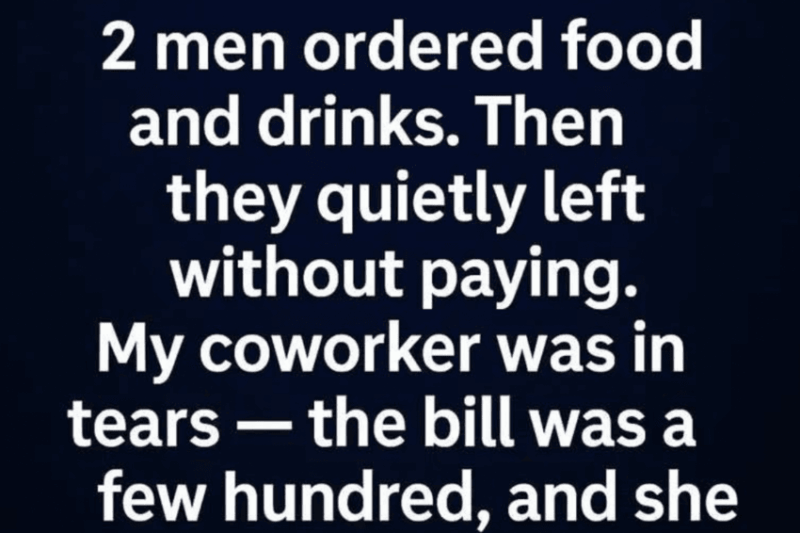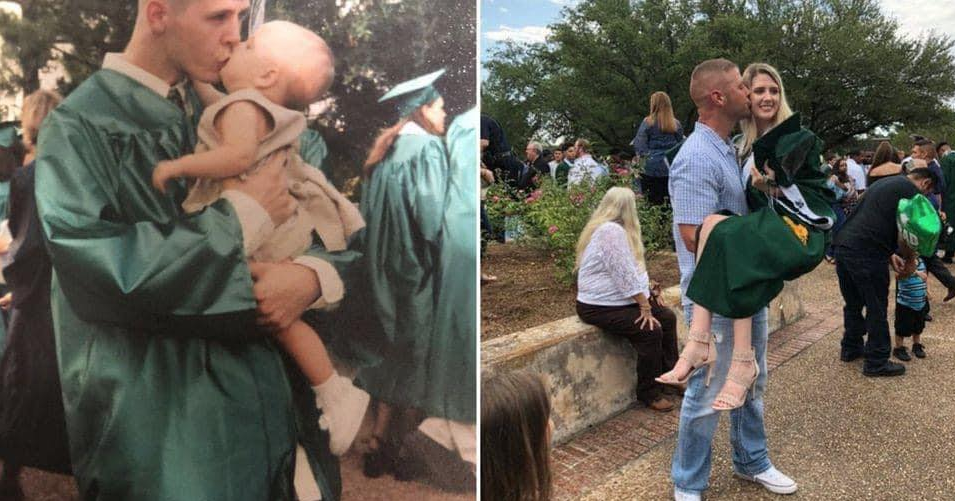My sister-in-law, Ashley, has a presence that’s hard to ignore. Her words and actions often leave a trail of discomfort, wounding those around her. One evening, she deliberately tampered with the handmade pasta ravioli I had crafted with care. I chose not to make a scene, but soon after, my husband’s grandmother revealed a surprising truth: Ashley was adopted.
That revelation caught me off guard. Not because adoption carries any stigma — it doesn’t — but because it shed light on something deeper. Her sharp edges, her need to always stand out, perhaps stemmed from a place of personal struggle. Yet, I firmly believe that one’s own pain doesn’t justify causing harm to others.
Ashley had a way of entering a space and altering its atmosphere, often for the worse. Her clever remarks, thinly veiled as humor, and her dismissive gestures could shrink anyone’s confidence. Still, she was family, so I made every effort to respond with kindness, even when it wasn’t easy.
The ravioli incident marked a shift.
I had devoted hours to preparing that meal, carefully kneading dough, blending spinach and ricotta, and shaping each ravioli for my husband’s birthday. It was a nod to his childhood, a recipe his mother once made.
Everyone seemed eager to enjoy it — except Ashley. She arrived late, overdressed for our simple backyard gathering, and brought store-bought garlic bread as a backup. I brushed off her subtle jab and focused on hosting.
But when we sat to eat, something was wrong. The ravioli tasted off, sharp and sour. My husband, after one bite, glanced at me with a quiet question in his eyes: “Is this how it’s supposed to taste?” My stomach sank.
Later, as the others moved inside for cake, I found an empty vinegar bottle hidden behind the spice rack. It wasn’t where I’d left it. Ashley had been in the kitchen earlier, insisting on “helping” despite my polite refusal.
I didn’t call her out. Instead, I tidied up, swallowing the sting of a ruined dish and the weight of her actions. If she needed to sabotage to feel better, I wouldn’t feed into her desire for conflict.
A week later, while returning a dish to my husband’s grandmother, we spoke about the dinner. She was a warm, perceptive woman with a keen mind. “The ravioli didn’t taste right,” she remarked. “But don’t blame yourself, dear. Ashley’s always been that way. You know, she’s not my son’s biological daughter.”
I paused, processing her words.
“Adopted,” she clarified, sipping her tea. “Her mother was my son’s first wife’s cousin. It’s a long story. But Ashley… she’s been wrestling with something inside her for years. Always trying to prove herself.”
It clicked. Her behavior started to make sense. But instead of softening me, it left me weary. Constantly excusing her actions while she spread hurt was exhausting.
I returned home, reflecting on my next steps. I wouldn’t gossip or expose her. That wasn’t my way. But I made a choice: I would no longer let her disrupt my calm.
So, I created distance.
I stopped including her in events I hosted. I remained courteous, never cold, but I didn’t seek her out. If she reached out, I responded kindly. But I stopped chasing connection. And life felt lighter for it.
Months went by. Ashley remained her usual self at family gatherings — loud, brash, cutting. My husband noticed it too. We’d greet her warmly, then move on. Our indifference seemed to unsettle her.
At a family barbecue, I brought a simple salad. As we set the table, Ashley passed by and quipped, “Still trying to win everyone over with rabbit food, huh?”
I met her gaze and said calmly, “You don’t have to eat it.”
She froze, caught off guard. She was used to me brushing off her comments with a smile. But I turned to my husband and continued our conversation as if nothing happened. In that moment, I reclaimed my strength, and she didn’t know how to respond.
Weeks later, a twist unfolded.
Ashley lost her job due to repeated complaints about her behavior at work. My mother-in-law shared the news over dinner, her voice heavy. “She’s struggling,” she said. “She’s lost her way.”
Part of me felt a flicker of satisfaction. Consequences, right?
But another part, the kinder one, felt a pang of sympathy.
Then came another blow: her boyfriend of two years ended their relationship. She’d always boasted about him, claiming he was fortunate to be with her. But he left, quietly packing up and cutting contact.
That’s when Ashley hit her lowest point.
One evening, she appeared at our doorstep, eyes swollen, makeup streaked, clutching a haphazardly packed tote bag. I was stunned. My husband greeted her casually, “Hey, Ash,” as if she were any guest.
On our couch, she unraveled, sobbing so deeply she struggled to breathe. For the first time, I saw her not as the antagonist, but as someone fragile, human.
She stayed that night, sleeping on the couch. I left a glass of water and a blanket for her, no words exchanged. In the morning, she said, “Thank you.” No sharpness, no hidden barbs. Just gratitude.
It wasn’t a grand reconciliation. No embraces, no long talks.
But it was the first genuine moment we’d shared.
In the weeks that followed, Ashley began to change. She apologized to my husband first, vaguely, for “being difficult.” He shrugged and said, “I figured you’d get tired of that eventually.”
Then, one day, she called me, asking to meet for coffee. I agreed.
At a quiet café, we sat in awkward silence at first. She stirred her drink endlessly; I toyed with my napkin. Then she spoke. “You make things from scratch. I never learned that. I never had the patience.”
I smiled. “It’s only cooking.”
“No,” she said, eyes down. “It’s more. You put care into it. And I… I ruin things.”
I let her words linger, saying nothing.
Then she surprised me. “I don’t want to be the person everyone avoids anymore. I want to be better.”
That marked the turning point.
Days later, she started therapy, sharing her decision openly with the family, not for attention, but for accountability. “I’m not proud of who I’ve been,” she said at a family dinner. “But I’m working on it.”
Skepticism lingered — understandably. But Ashley kept showing up differently. She helped at gatherings without prompting, brought homemade dishes (imperfect, but earnest), and offered compliments without backhanded remarks. She even assisted my husband’s cousin with her wedding plans, no agenda in sight.
And the clearest sign? No more store-bought garlic bread.
A year later, we hosted my husband’s birthday again. I made ravioli, and Ashley arrived early, offering to help. I let her fill a few, her hands clumsy but sincere. She was trying.
At dinner, she raised her glass. “To meals made with care, and to learning not to ruin them.”
Laughter filled the room, but I saw the spark in her eyes. Gratitude.
After dinner, she pulled me aside. “I can’t erase the past,” she said. “But I see what you do. I used to think kindness was soft. Now I know it’s the hardest thing to hold onto.”
That moment made years of quiet endurance feel worthwhile.
Ashley isn’t perfect. No one is.
But she’s trying. And that’s everything.
Here’s what I’ve come to understand: those who hurt others often carry their own deep wounds. That doesn’t mean you let them trample you. But it also doesn’t mean you close the door on them forever.
Boundaries can be an act of care. Space can foster healing. And sometimes, letting someone fall is the kindest thing — because when they stand, they do so with their own strength.
To anyone navigating their own “Ashley”: guard your peace, but hold onto your compassion.
And if you ever witness someone’s transformation — truly see it — cherish it. Growth is rare. And beautiful.
Share this if you’ve ever seen someone change for the better. Or if you’ve been the one who needed to grow. ❤️




